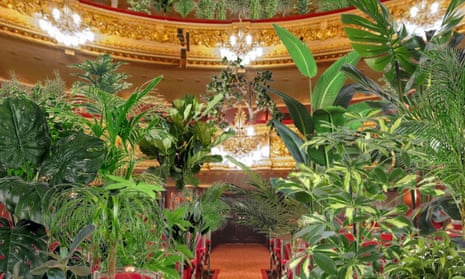Attendees of the first post-lockdown concert at Barcelona’s Liceu opera house next week will not need masks or gloves, nor will they be required to observe physical distancing.
But they might like to take along a nice comfy pot and a little water to prevent their roots from drying out as a string quartet serenades them, fittingly, with Puccini’s Crisantemi (Chrysanthemums).
Well aware of the need to return with a spectacle as grabby as a venus flytrap, the Catalan venue has announced a concert for 2,292 plants when it reopens next Monday. Non-vegetable music fans will also be able to enjoy the performance as it will be livestreamed.
According to the Liceu’s artistic director, Víctor García de Gomar, the Concert for the Biocene is intended to help us ponder the current state of the human condition and how, in lockdown, we have become “an audience deprived of the possibility of being an audience”.
When the twin violins, viola and cello of the Uceli quartet strike up “for the vegetable kingdom” at 5pm next Monday, “humans will become the spectators of their own social chronicle”, García de Gomas said .
Eugenio Ampudia, the conceptual artist behind the concert, said it aimed to reflect what has happened across Spain and around the world as the Covid-19 pandemic has forced people to retreat from shared public areas.
“At a time when an important part of humankind has shut itself up in enclosed spaces and been obliged to relinquish movement, nature has crept forward to occupy the spaces we have ceded,” said Ampudia.
“And it has done so at its own rhythm, according to its patient biological cycle. Can we broaden our empathy and bring it to bear on other species? Let’s start by using art and music and inviting nature into a great concert hall.”
When the strings fall silent and palms have been duly pressed together in appreciation, the plants will be donated to 2,292 health workers as thanks for their efforts over recent months.
